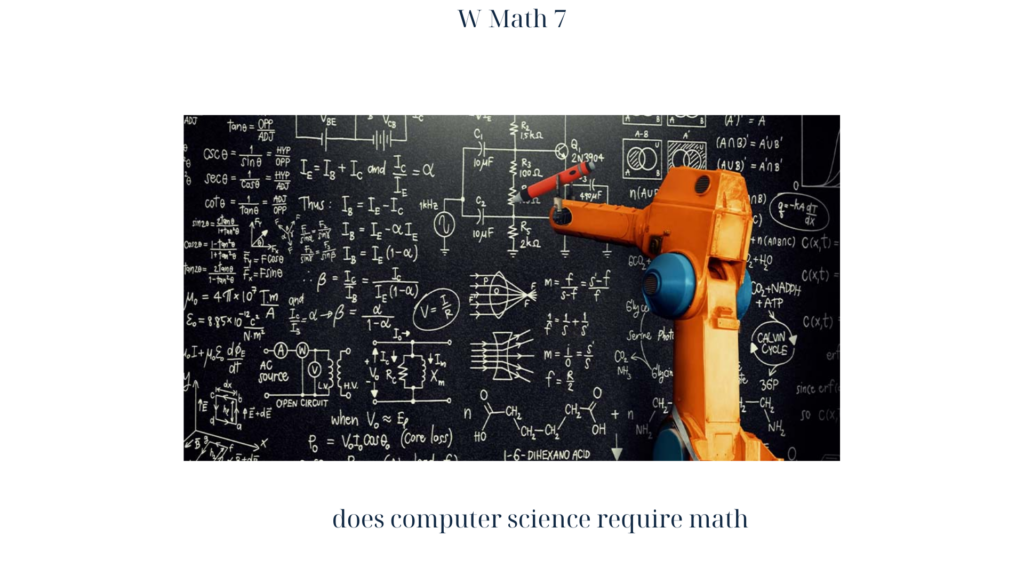When I was studying math in college, I thought the first year would be the hardest. The truth is that it got harder and harder with each passing semester.
In my experience, the most challenging mathematics classes are graduate courses such as functional analysis and differential geometry. This is because graduate courses have prerequisites that can be used as a stepping stone to introduce more complex topics and ideas.
Now, keep in mind that mathematics is a very diverse field, and each branch has its own challenging theorems and unsolved problems. That is why I will give you an overview of the most difficult classes for each branch of mathematics.
The 3 Most Challenging Algebra Courses
Algebra is one of the first opportunities for young mathematicians to learn the basic laws of mathematics and experiment with them. Though algebra is taught at an elementary level, it is one of the farthest-stretching fields of mathematics.
In my experience, students think that the most difficult algebra courses in college are Algebraic K-theory, Homotopical algebra, and Linear algebraic groups. A challenging undergraduate course is group theory, in which students learn how to manipulate an algebraic structure known as groups.
Other difficult courses are:
- Algebraic number theory:uses the techniques of abstract algebra to study the properties of numbers
- Lie groups: an in-depth course on group theory that ties together math concepts such as differentiable manifolds, differential calculus, and groups.
Some computer science degrees require students to learn some of the ideas of abstract algebra (specifically group theory). Still, for the most part, abstract algebra is firmly in the field of professional mathematicians.
The 3 Most Challenging Geometry And Topology Classes
Geometry is another example of an area of mathematics in which almost everybody learns the basics. Besides being a fundamental building block, geometry can also grow complex. It is one of the oldest mathematical disciplines, and there are a lot of mathematical concepts to discover.
The most difficult geometry and topology graduate classes include Riemannian geometry, differential geometry, and complex geometry. Difficult undergraduate classes are linear algebra, Euclidian geometry, and introduction to topology.
The ideas taught in these classes vary widely, but geometry will always have to do with shapes and planes. Euclidian geometry starts with the basic ideas of points, lines, planes, and shapes but it branches out into ideas about the positioning of objects and geometric proofs. Differential geometry is closely associated with calculus, taking advantage of some of the truths in calculus to give shape to the universe. Complex geometry refers to the shape of extremely complex objects that may loop, fold, and cross over one another.
The 4 Most Difficult Statistics Classes
Statistics is a valuable science, as it helps people make educated decisions about what will likely happen. It is taught in classes like “Statistical Theory” or “Modern Regression Methods.” Most statistics classes start with an introduction to probability and then begin to help students reach reasonable conclusions from the data that they are provided. Students are taught to recognize specific statistical patterns and then extrapolate different conclusions.
The most challenging statistics graduate classes are Time Series, Spatial Statistics, Statistical Genetics, and Applied Machine Learning.
Statistics is one of the most valuable fields for mathematics students who want to make money. It is useful in just about any profession, from business to philosophy to political science. However, it isn’t often required for most majors. If you want the benefits of an education in statistics, you should seek out the courses yourself.
The 4 Most Difficult Combinatorics And Discrete Mathematics Classes
The field of discrete mathematics simply forms the counterpart to continuous mathematics. Whereas continuous mathematics contains numbers that are connected and stable (like a function to find the volume of a sphere), discrete mathematics works with sets of numbers that are discontinuous or discrete.
Discrete mathematics also has much to do with logic, set notation, and probability. Discrete mathematics courses usually have few mathematics prerequisites, though all students are expected to possess some form of mathematical maturity. This usually means that students hoping to learn discrete math should understand algebra, geometry, and pre-calculus.
The most difficult discrete mathematics and combinatorics classes include Advanced Algorithms, Probabilistic Methods, Graph Theory, and sometimes advanced linear algebra topics.
Discrete math classes are most commonly taken by computer science and software engineering students, as a strong understanding of sets, logic, and patterns is essential for careers working with computers. Computer science jobs require a deeper understanding of discrete math than software engineering careers, as their degree puts a stronger emphasis on mathematics.
The 2 Most Advanced Logic Classes
Math concepts covered by logic classes include set theory, and mathematical and logical proofs. Mathematical logic involves a lot of logical symbols and revolves around the idea that math can always be proven. It has grown and expanded along with mathematics as a whole, offering a language for mathematicians to speak and write in as they draw new conclusions and discover new patterns.
Advanced logic classes include topics such as Empirical Mathematics Reasoning and Advanced Deductive Logic. These classes teach students how to reach logical conclusions from simple propositions. They allow students to learn about the mathematical concepts and formulas they have learned through the years on a deeper level than before.
Taking classes in mathematical logic is required for degrees in mathematics, computer science, and philosophy. However, a strong understanding of logic is valuable anywhere. Being able to prove things you know are true (or disprove the opposite) is a useful skill. Mathematical logic teaches you to think differently.
The 4 Most Difficult Numerical Analysis Classes
Numerical analysis is another topic that is learned by students who are not strictly mathematicians. It is a field of mathematics that has to do with the use of numbers as approximations for real-world things. These numbers are then analyzed and used to predict and measure things in the world around us.
For example, numerical analysis is used extensively in the world of physics. Numbers are used to represent things like the strength of gravitational pull or the time that it takes for a ball to hit the ground. By following the same standards of measurement, scientists around the world can take measurements of things in the world around us. These can then be used to extrapolate things like when the next solar eclipse will be or how fast an airplane must fly in order to stay in the air.
The most difficult applied analysis classes include Numerical Methods for Conservation Laws, Computational Finance, and Numerical Integration of Stochastic Differential Equations. These classes teach numerical analysis from its fundamentals and its concrete bases all the way to some of the more theoretical and imprecise forms of the mathematical discipline.
Numerical Analysis is a fundamental part of learning for students that are planning on going into astronomy, geology, or any of the physical sciences. It is also important for doctors and biologists. Modeling the world around numbers helps us to understand and shape it.
Why Mathematics Is So Hard in College
Universities have the goal of educating and enriching society. They offe
r courses to students to help them have a deeper understanding of the world and to help them gain employment. Mathematics plays an exciting role in helping universities achieve these goals, as math itself isn’t a job like law or programming.
However, many people do not appreciate everything that mathematics has to offer. Because mathematics requires us to think in a way most people are not used to, it is seen as dull or boring. Many spend years learning mathematics through high school, all while doubting its value.
This avoidance of mathematics comes from never really being able to see mathematics at work. Most high school math classes revolve around doing a repetitive operation (like finding the angles of a triangle’s corners). Real math is about patterns and logic. It’s about describing the way that the world works. Though understanding mathematics isn’t always easy, it is rewarding.
Despite the difficulties of mathematics, universities understand how an understanding of higher-level math can add to a skillset. For example, civil engineering students need to understand calculus concepts to design buildings that do not fall down.
The Bottom Line
As you can see, there are a lot of different fields of mathematics, each with its own particular high-level courses.
It’s true that math (especially higher-level math) can be intimidating, but math has been and always will be based on logic and simple laws. If you have been avoiding mathematics since high school, give it another chance. You might be surprised at how much you like it and how much you learn.



